Apr 7, 2023
7 Mailchimp Integrations That Can Help Grow Your Brand
These 7 Mailchimp integrations can simplify email campaigns, communication, and beyond. From lead generation to internal operations, see what these tools can do for you.

Mailchimp is one of the most popular B2B marketing tools, and for good reason. This email marketing powerhouse is remarkably easy to use, allowing you to automate messages and gain new subscribers. Mailchimp integrations are another valuable part of this platform. They can make email campaigns and other activities even more effective.
Mailchimp is far from the only tool in your company's arsenal. CRM platforms, customer support tools, social media platforms, and all part of your daily work. Mailchimp integrations provide the functionality you need to connect these platforms. By making your workflow and marketing more intertwined, you can get better results than ever from your marketing campaigns.
Here are some of the most important Mailchimp integrations you should consider adding to your Mailchimp account. With your Mailchimp API key and the right integrations, the possibilities are endless.
7 Essential Mailchimp Integrations
1. Zapier
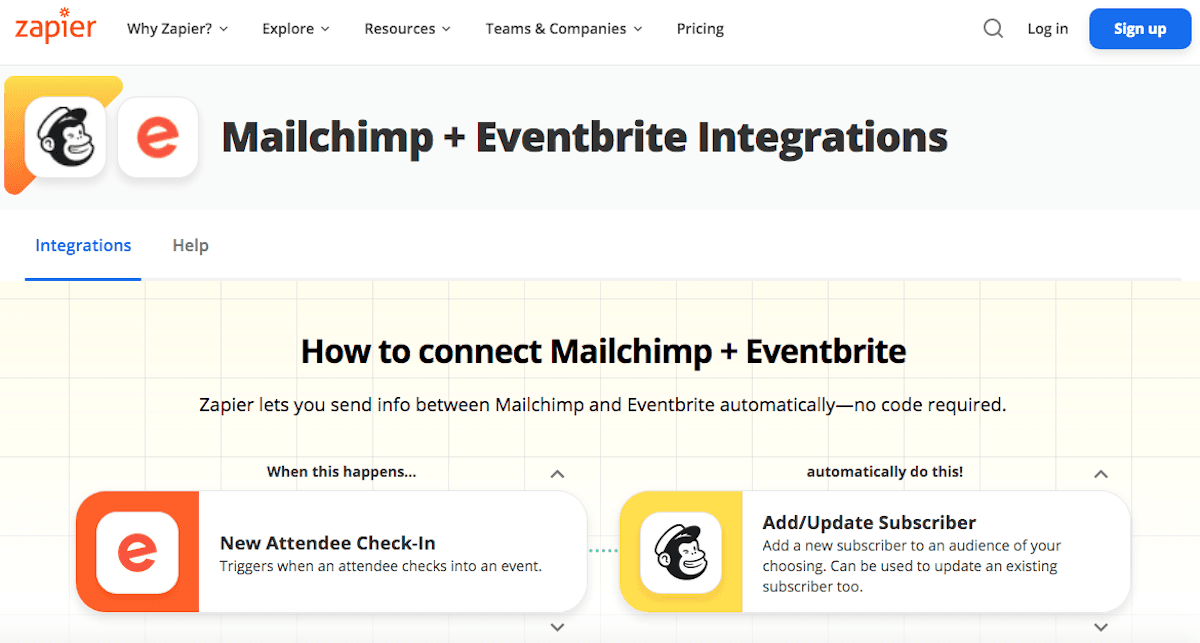
Image credit: Zapier
For many companies, Zapier is the first stop when selecting a Mailchimp integration. After all, Zapier is specifically designed to facilitate integrations between apps. Zapier allows users to set up automation systems known as "Zaps." These are essentially "if-then" functions that connect data between apps.
For example, if someone registers for one of your company's events through Eventbrite, then Zapier can add their email address and other details to your Mailchimp email list. This lets you grow your Mailchimp list automatically.
With dozens of pre-made Zaps for Mailchimp (and the ability to create custom Zaps), this integration serves as the gold standard for connecting Mailchimp with other tools. With a few clicks, you can take a true "set it and forget it" approach to linking information between Mailchimp and other platforms.
2. WordPress
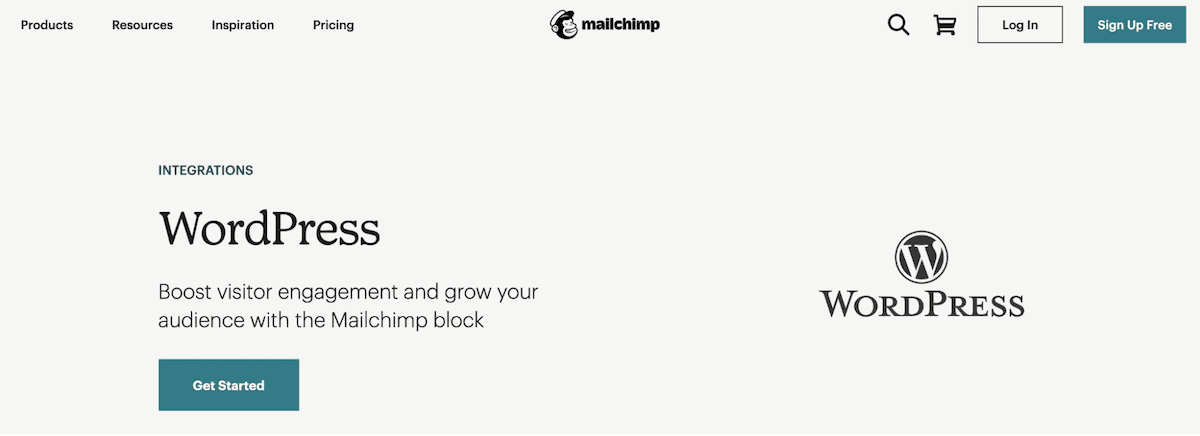
Image credit: Mailchimp
WordPress is one of the most popular web hosting sites, powering over 42% of active websites. If your website is powered by WordPress, integrating it with Mailchimp can help your growth.
When you add the Mailchimp block to your WordPress site, it lets website visitors sign up for your email list from any page on your website. You can customize your email sign-up form with placeholder text, submit button text, and even terms and conditions.
An attractive, properly placed Mailchimp block can help you quickly grow your subscriber list. Better yet, sign-up information is automatically transferred to Mailchimp so new subscribers can start receiving your emails right away. You can add the email sign-up block to any page — your homepage, a blog post, and of course, your landing pages.
3. Shopify
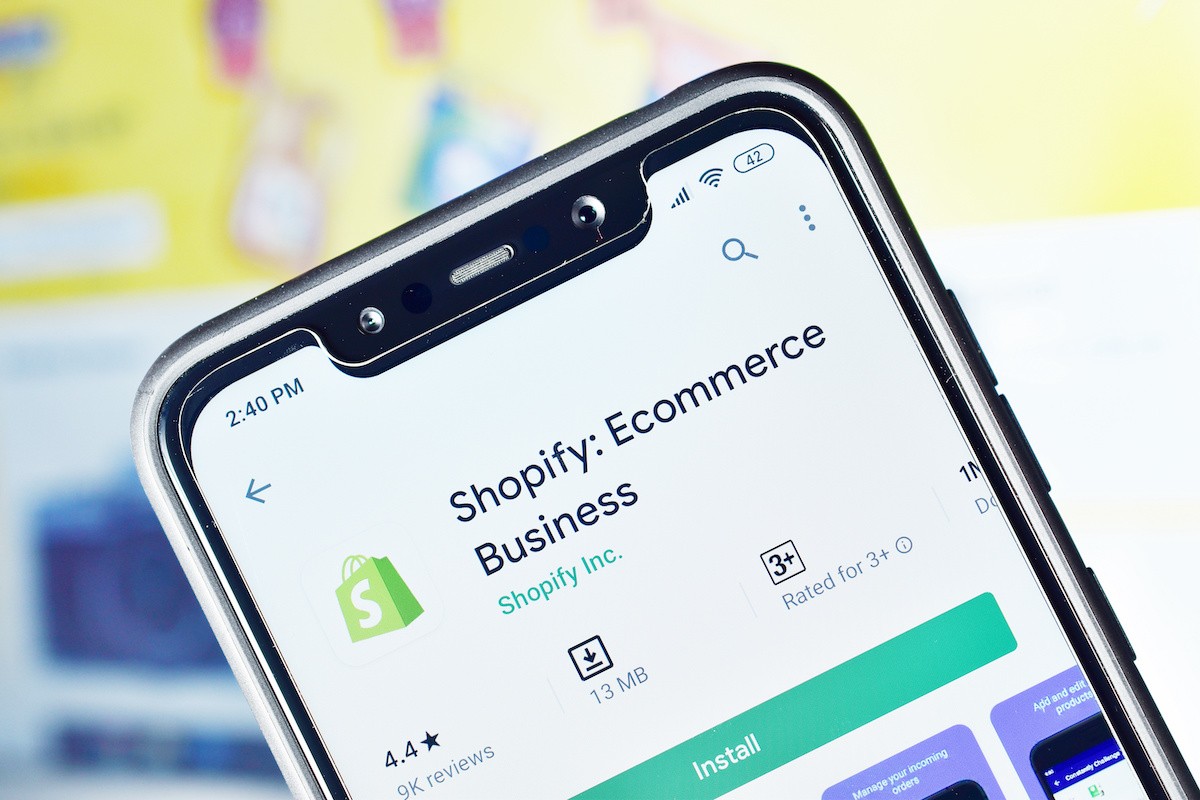
Shopify is a leading e-commerce platform that offers an add-on known as ShopSync. ShopSync can connect a Shopify website with Mailchimp. This tool syncs information about customers and their orders, as well as a site's products, with Mailchimp.
This can serve as a powerful marketing automation solution that allows sellers to segment their customers based on current behaviors. For example, the tool could trigger emails based on abandoned shopping carts, offer product recommendations based on previous purchases, or inform customers of an upcoming sale. The tool can also trigger a pop-up on your website to get customers to sign up for your email list.
Segmentation is one of the best ways to improve your conversion rate. For example, take a campaign that focuses on shoppers who abandoned their cart. Research reveals that sending three cart abandonment emails can improve order rates by 69%. By automatically sending marketing emails based on customer behaviors, you can drive repeat purchases and improve your web traffic.
4. Salesforce
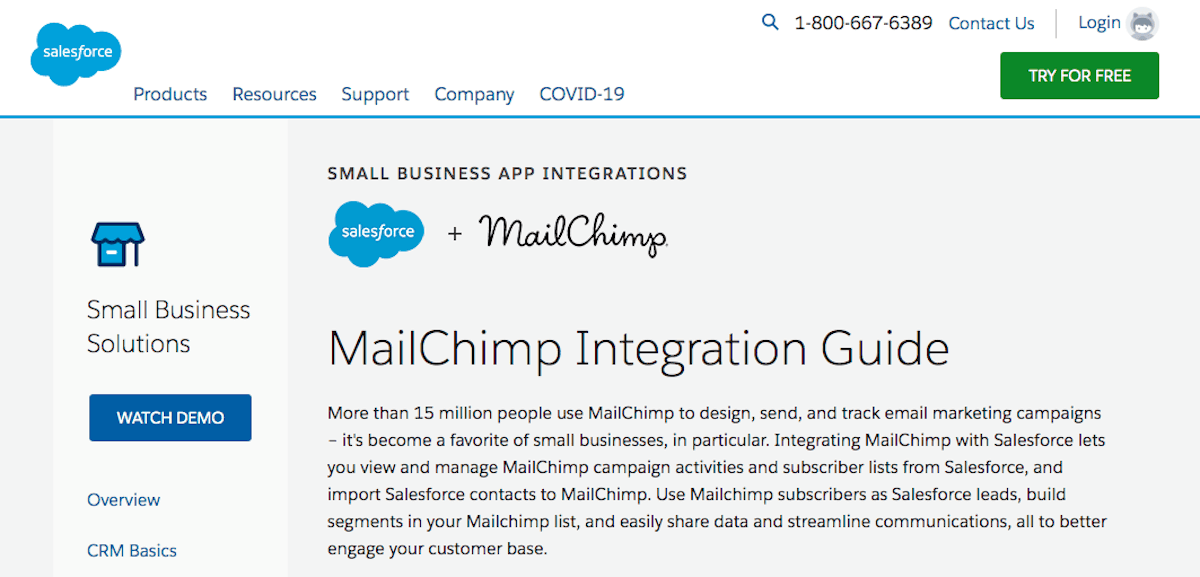
Image credit: Salesforce
While Shopify may be favored by e-commerce brands, Salesforce is viewed as one of the most important tools in B2B sales. This powerful, cloud-based CRM gives marketing, sales, service, and other teams a single, unified view of a customer's journey. Mailchimp integrations can further enhance your ability to provide targeted communications to leads and customers.
By syncing leads and contacts with Mailchimp, you can provide better targeting for your email campaigns. As with the Shopify integration, you can segment your email list based on a customer's previous brand interactions to send the right messages at the right time.
When you send more relevant content to your contact list, leads and customers are more likely to open your emails. This makes you far more likely to achieve campaign goals while reducing the number of people who click the "unsubscribe" button.
5. Zendesk
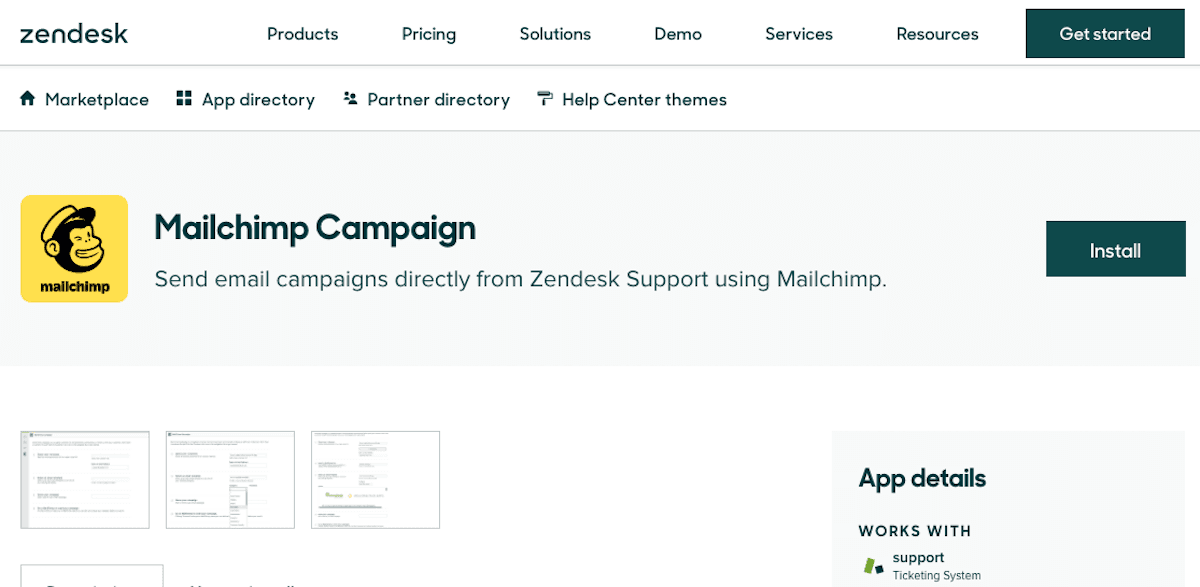
Image credit: Zendesk
Zendesk is another popular CRM tool that is primarily focused on customer service. After all, providing quality service to someone after they become a paying customer is key to retaining their business.
Integrating Mailchimp with Zendesk makes it easier to stay in touch with customers when troubleshooting issues, service requests, and other activities that are vital for keeping customers satisfied.
The Zendesk Activity Integration allows your customer support team to view a history of all email communications a customer has received. This enables faster and more efficient troubleshooting of subscriber requests, including being added to or removed from an email list.
6. Google Forms

Image credit: Google Workplace Marketplace
Google Forms are highly versatile, serving for everything from simple email sign-ups to more involved surveys. While collecting this data can prove extremely valuable, converting it into something truly usable is sometimes easier said than done.
The Google Form Mailchimp integration allows you to automatically create or update contacts based on information you receive through an online form. All you have to do is connect your Google and Mailchimp accounts and apply the add-on to your Google Form.
With the add-on in place, response data will be used to automatically create or update a Mailchimp subscriber for your email list. While you'll still need to dig into other responses if you’re doing a lengthier survey, you can at least rest assured that email information has been handled.
7. Slack
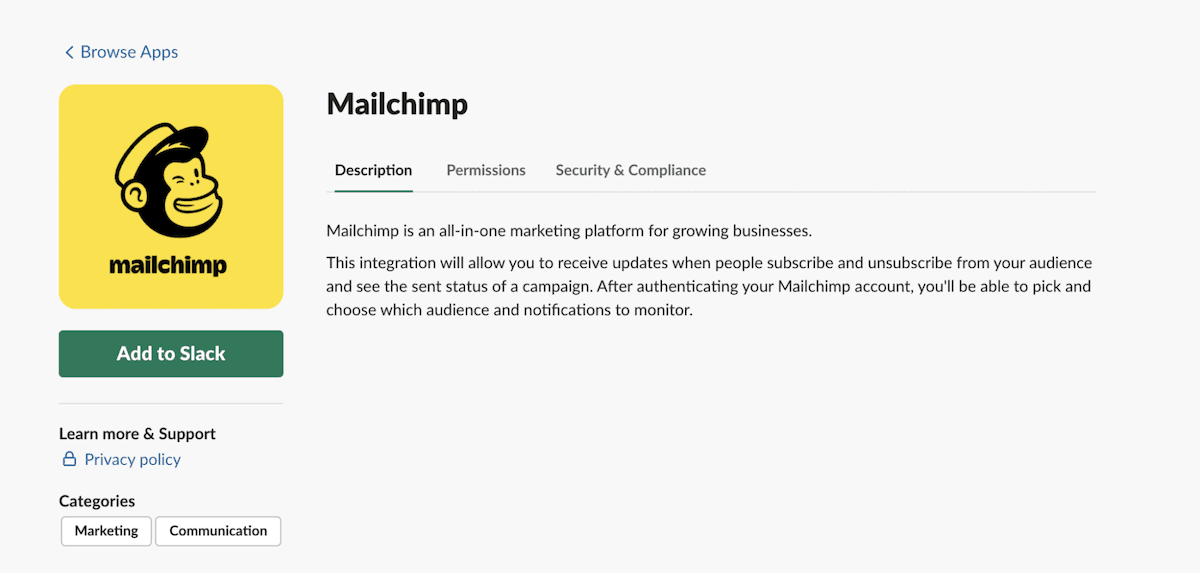
Image credit: Slack app directory
Slack has become the go-to project management communication platform for many businesses. It, too, can be linked to your Mailchimp account to keep your team in the know about live, up-to-date information regarding your email campaigns.
The Mailchimp-to-Slack integration provides live notifications for subscribers, unsubscribes, and updates on campaign sending status. This can give your marketing team a real-time look at how a campaign is going. For example, if you notice a large uptick in unsubscribes after a particular email is sent, your team can respond quickly to identify and correct the issue.
While the Slack integration may not be as robust as the others on this list, it can improve your team's decision-making abilities.
Unlock the Potential of Your Mailchimp Campaigns

With the right set of Mailchimp integrations, you can truly take your email campaigns to the next level. Integrations with the other tools you use every day can improve both internal and customer-facing operations. From lead generation to onboarding new customers, small businesses and enterprise-level brands can streamline their efforts and achieve better results.
If you'd like to further enhance your web marketing efforts, ServiceBell is another easy-to-integrate solution. With just a single line of code, you can provide live video chat to give your visitors the in-person experience online. Regardless of whether the site was built using WordPress, Shopify, SquareSpace, or another platform, integrations like this create a more personalized online experience.